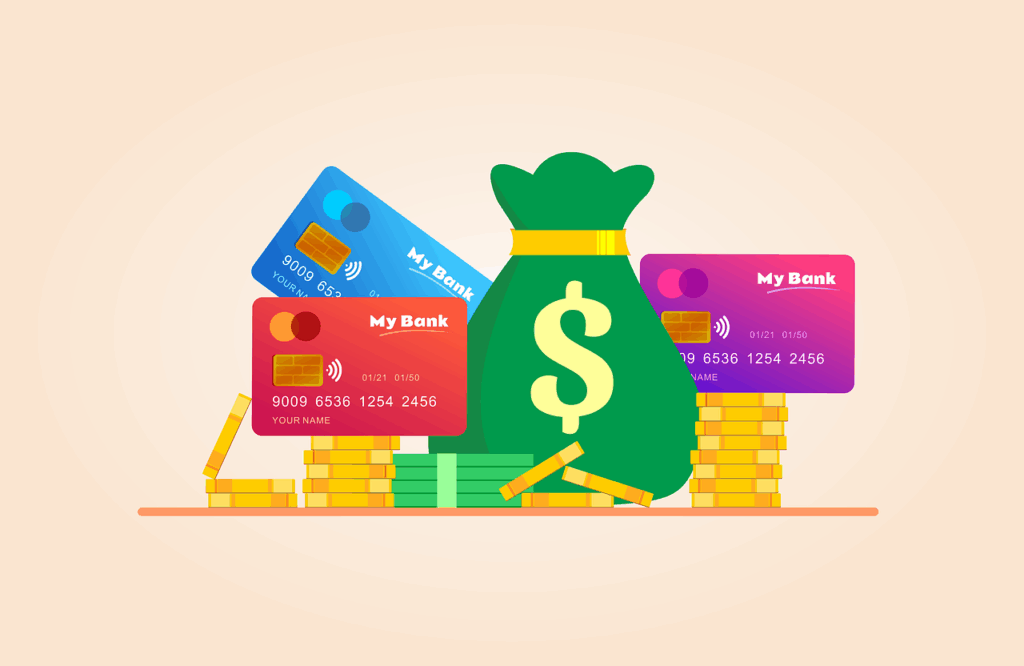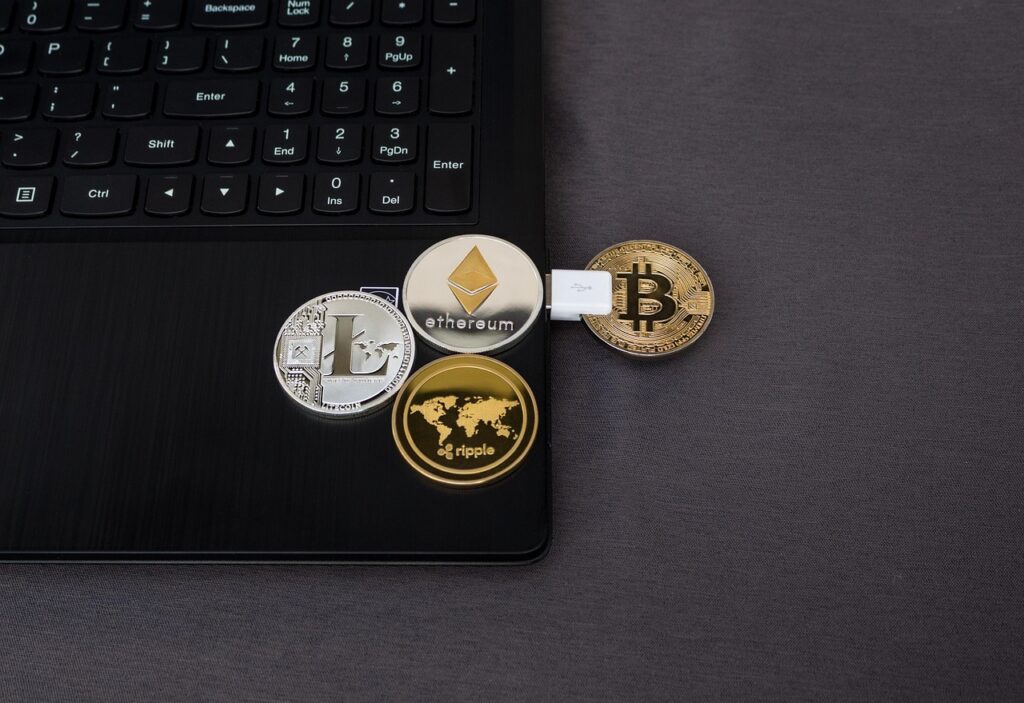More and more businesses are looking into using crypto, and it’s not just a passing trend. This digital money is pretty different from the regular cash we’ve used forever. Unlike normal money, crypto isn’t controlled by one government. Instead, it runs on something called blockchain technology, which is like a super secure, unchangeable record for all transactions. Bitcoin is probably the most famous one, but there are others, like Ethereum, which is big in Web 3.0 stuff. There are lots of reasons why businesses are finding crypto useful, especially when it comes to things like credit card payments. We’re going to look at the benefits of using crypto for credit card payments.
Table of Contents
- 1 Why Use Crypto for Credit Card Payments? Introduction & Overview
- 2 Benefit 1: Lower Transaction Fees Compared to Credit Cards
- 3 Benefit 2: Instant Settlement & Faster Transactions
- 4 Benefit 3: Elimination of Chargebacks and Fraud Protection
- 5 Benefit 4: Enhanced Security & Encryption Features
- 6 Benefit 5: Global Accessibility & Cross‑Border Ease
- 7 Benefit 7: Access to a Tech‑Savvy, Affluent Consumer Base
- 8 Integrating Crypto & Credit Card Infrastructure: Practical Tips
- 9 Potential Downsides & Considerations for Crypto Payments
- 10 Frequently Asked Questions
- 11 How can crypto payments save money on fees?
- 12 Are crypto payments quicker than credit card payments?
- 13 Is paying with crypto safer than using a credit card?
- 14 What’s the deal with chargebacks and crypto?
- 15 Can I use crypto to pay people in other countries easily?
- 16 Do crypto payments offer more privacy?
- 17 How does accepting crypto help businesses find new customers?
- 18 Are there any downsides to using crypto for payments?
Why Use Crypto for Credit Card Payments? Introduction & Overview

So, you’re thinking about using crypto to pay credit card with cryptocurrency? It might sound a bit futuristic, but it’s becoming more common. Let’s break down why this is even a thing and what the potential benefits are.
Think of it this way: traditional credit card systems have been around for ages, and they come with their own set of problems. Fees, slow transaction times, and security concerns are just a few. Crypto offers a different approach, and for some, it’s a better one.
The idea is simple: use cryptocurrency to pay off your credit card balance or even earn crypto rewards for credit cards. But the implications are pretty big. We’re talking about potentially lower costs, faster transactions, and a whole new level of financial control.
Here’s a quick look at what we’ll cover:
- Why crypto is gaining traction in the payment world.
- The key advantages of using crypto for credit card payments.
- Some practical tips for integrating crypto into your existing financial setup.
- The potential downsides and things to consider before making the switch.
Crypto payments are not a magic bullet. There are risks involved, and it’s important to understand them before you jump in. Things like price volatility and regulatory uncertainty can impact your experience. But for those who are willing to do their homework, the rewards can be significant.
Benefit 1: Lower Transaction Fees Compared to Credit Cards
One of the most compelling reasons to consider crypto for credit card payments is the potential for lower transaction fees. Traditional credit card processing comes with a variety of costs, including interchange fees, assessment fees, and processing fees, which can eat into a merchant’s profits. Crypto transactions, on the other hand, often have significantly lower fees, especially for cross-border payments.
Think about it: every time someone swipes a credit card, a percentage goes to the bank, the card network (like Visa or Mastercard), and the payment processor. These fees add up, especially for small businesses operating on tight margins. Crypto aims to cut out some of these intermediaries, potentially saving merchants a good chunk of change. Of course, Bitcoin transaction fees can fluctuate, but overall, the potential for savings is there.
Switching to crypto payments isn’t a magic bullet, and it requires some adjustments. You need to consider the volatility of cryptocurrencies and the learning curve involved in setting up crypto payment systems. However, the potential for lower fees makes it a worthwhile consideration, especially if you’re dealing with a lot of transactions or international sales.
Here’s a quick look at some potential benefits:
- Reduced processing costs compared to traditional credit card fees.
- More competitive pricing for goods and services due to lower overhead.
- Increased profitability for merchants, especially on high-volume sales.
Benefit 2: Instant Settlement & Faster Transactions

One of the biggest headaches with traditional credit card payments is the waiting game. You make a purchase, but the merchant doesn’t actually get the money right away. There’s a whole process involving banks, payment processors, and clearinghouses. This can take days, sometimes even weeks, especially for international transactions. Crypto changes all that.
With crypto, transactions can settle much faster, often in minutes or even seconds. This is because crypto operates on a blockchain, a decentralized ledger that verifies and records transactions almost instantly. No more waiting for banks to open or for international wires to clear. It’s a game-changer for both merchants and consumers.
Here’s why this speed matters:
- Improved Cash Flow: Businesses get their money faster, which means they can reinvest it sooner. This is especially helpful for small businesses that rely on quick turnover.
- Reduced Risk: Faster settlement reduces the risk of fraud or payment reversals. The sooner the transaction is finalized, the less chance there is for something to go wrong.
- Increased Efficiency: Quicker transactions free up time and resources for both businesses and consumers. No more tracking down payments or waiting on hold with customer service.
Imagine a world where you can pay for something online, and the merchant receives the funds almost immediately. That’s the power of crypto. It streamlines the payment process and makes it more efficient for everyone involved.
Consider this comparison:
| Feature | Traditional Credit Cards | Crypto Payments |
| Settlement Time | 1-3 business days | Minutes/Seconds |
| Transaction Speed | Slower | Faster |
For example, if you’re considering crypto for car accident settlements, the speed of transactions could be a significant advantage, allowing for quicker access to funds during a stressful time. The ability to receive funds almost instantly can be a huge relief.
Crypto’s speed and efficiency are transforming the way we think about payments. It’s a faster, more convenient, and more reliable way to transact business in the digital age.
Benefit 3: Elimination of Chargebacks and Fraud Protection
Okay, so one of the biggest headaches for businesses using credit cards is chargebacks. Customers can dispute a charge, and sometimes, even if the business is in the right, they lose money and inventory. It’s a real pain. With crypto, this problem largely disappears. Once a crypto transaction is confirmed on the blockchain, it’s pretty much irreversible.
Think about it: no more dealing with those annoying chargeback fees or the hassle of proving you delivered the goods. It’s a huge win for merchants.
Here are a few reasons why this is such a big deal:
- Reduced fraud: Because transactions are verified and secured by cryptography, the risk of fraudulent transactions is much lower.
- Lower fees: No chargeback fees mean more money stays in your pocket.
- Faster resolution: Disputes are minimized, saving time and resources.
Using crypto can seriously cut down on fraud. It’s not a magic bullet, but it adds a layer of security that traditional credit cards just can’t match. Plus, the transparency of the blockchain makes it easier to track transactions and identify any suspicious activity.
And let’s not forget about fraud protection. Credit card fraud is a constant threat, but crypto offers some serious advantages here, too. The decentralized processing and recording system can be more secure than traditional payment systems. Of course, you still need to be careful and follow best practices for security, but the inherent nature of crypto makes it a safer option overall.
Benefit 4: Enhanced Security & Encryption Features
Okay, so one of the biggest things people worry about with online payments is security, right? Well, using crypto for credit card payments brings some pretty cool security features to the table. It’s not a magic bullet, but it adds some layers of protection.
The underlying technology of most cryptocurrencies is designed to be very secure.
Think about it like this:
- Crypto transactions use cryptography, which is basically super-advanced code that makes it really hard for anyone to mess with the data. It’s like having a super strong lock on your money.
- Because of the way cryptocurrency works, every transaction is recorded on a public ledger (the blockchain), but the details are encrypted. So, while everyone can see that a transaction happened, they can’t necessarily see who sent it or who received it. This adds a layer of privacy.
- Many crypto platforms offer two-factor authentication (2FA) and other security measures to protect your account. It’s like having a double lock on your front door.
It’s important to remember that while the technology itself is secure, you still need to be careful. Don’t share your private keys with anyone, use strong passwords, and be wary of phishing scams. Use common sense!
Using crypto can also help reduce the risk of certain types of fraud. For example, because transactions are irreversible, it’s much harder for someone to make a fraudulent purchase and then try to get their money back. It’s not perfect, but it’s a step in the right direction.
Benefit 5: Global Accessibility & Cross‑Border Ease

One of the biggest headaches for businesses, especially smaller ones, is dealing with international payments. Banks often charge hefty fees, and the exchange rates can be a real killer. Plus, the whole process can take days, sometimes even weeks. Crypto offers a way around all that.
Crypto transactions aren’t tied to any specific country or banking system, making them ideal for cross-border payments. It’s like having a universal currency that anyone, anywhere, can use.
Here’s why this is a game-changer:
- Reduced transaction times: Forget waiting days for payments to clear. Crypto transactions can be confirmed in minutes, sometimes even seconds.
- Lower fees: Crypto transaction fees are generally much lower than those charged by banks or payment processors for international transfers. This can save businesses a significant amount of money, especially when dealing with frequent or large transactions.
- No currency conversion hassles: Since many cryptocurrencies operate globally, there’s no need to worry about converting currencies and dealing with fluctuating exchange rates. This simplifies the payment process and reduces the risk of unexpected costs.
Using crypto for cross-border payments can level the playing field for businesses of all sizes. It allows smaller companies to compete in the global market without being burdened by the high costs and complexities of traditional payment systems. It’s about Bitcoin-enabled banking and making international commerce more accessible.
Imagine a small business in the US selling products to customers in Europe. With traditional payment methods, they’d have to deal with currency conversion fees, international transfer fees, and long processing times. But with crypto, they can receive payments quickly and cheaply, without any of those hassles. It opens up a whole new world of opportunities.
Here’s a simple comparison:
| Feature | Traditional Payment | Crypto Payment |
| Transaction Time | Days | Minutes |
| Transaction Fees | High | Low |
| Currency Conversion | Required | Not Required |
Benefit 6: Greater Privacy and Financial Autonomy
Okay, let’s talk about something a lot of people care about: keeping your financial life private and having more control over your money. Using crypto for credit card payments can actually help with both of those things. It’s not a perfect solution, but it definitely shifts the balance a bit.
One of the big draws of crypto is that it’s not tied to your bank account in the same way traditional credit cards are. Think about it: every time you swipe your card, there’s a record of where you spent your money. With crypto, you can achieve a higher degree of privacy, though it’s not absolute anonymity. It’s more like pseudonymity, where your transactions aren’t directly linked to your personal information unless you choose to reveal it. This can be especially appealing if you’re concerned about data breaches or just don’t want companies tracking your every move.
Beyond privacy, there’s also the aspect of financial autonomy. Crypto gives you more direct control over your funds. You’re not relying on a bank or payment processor to approve or deny transactions. This can be useful for international transactions or in situations where traditional financial institutions might block or delay payments. Plus, you have the potential to bypass some of the fees and restrictions that come with traditional banking.
Here’s a quick rundown of the benefits:
- Reduced reliance on traditional financial institutions.
- Greater control over your funds.
- Potential for lower fees and faster transactions, especially internationally.
- Increased privacy compared to traditional credit card transactions.
It’s important to remember that while crypto offers more privacy, it’s not a magic bullet. Transactions are still recorded on the blockchain, and with enough effort, it might be possible to link them back to you. Plus, regulations are constantly evolving, so it’s crucial to stay informed about the latest developments.
For example, anonymous crypto cards in Europe are facing increased scrutiny due to concerns about regulatory compliance.
Ultimately, using crypto for credit card payments can be a way to reclaim some control over your financial life and enjoy a bit more privacy. It’s not for everyone, but it’s worth considering if those things are important to you.
Benefit 7: Access to a Tech‑Savvy, Affluent Consumer Base
Let’s be real, who doesn’t want to tap into a group of consumers who are both comfortable with new tech and have money to spend? Accepting crypto for credit card payments can open doors to just that. It’s not just about accepting a different form of payment; it’s about signaling that your business is forward-thinking and understands the future of finance.
This can be a major draw for a specific demographic that values innovation and is often an early adopter of new technologies.
Think about it: people who are into crypto are generally more comfortable with digital transactions and are actively looking for ways to use their digital assets. By offering this option, you’re making it easier for them to do business with you. It’s like putting out a welcome mat for a whole new segment of potential customers. Plus, it can give you a competitive edge over businesses that are still stuck in the old ways of doing things. You might even see an increase in sales just from the novelty factor and the positive buzz it generates.
Adopting crypto isn’t just about the tech; it’s about understanding a shift in consumer behavior. It’s about recognizing that some people want more control over their finances and are looking for businesses that respect that. By accepting crypto, you’re showing that you’re not just keeping up with the times, but you’re also listening to what your customers want. It’s a smart move for any business that wants to stay ahead of the curve.
Here’s a quick look at why this consumer base is so attractive:
- They’re early adopters: They’re always looking for the next big thing.
- They’re digitally native: They’re comfortable with online transactions and digital wallets.
- They’re often affluent: They have the disposable income to spend on new products and services.
By integrating crypto payments, you’re not just accepting a new form of payment; you’re gaining access to a valuable and growing consumer base.
Integrating Crypto & Credit Card Infrastructure: Practical Tips
So, you’re thinking about blending the world of crypto with traditional credit card systems? It’s not as crazy as it sounds, and there are some pretty straightforward ways to make it happen. It’s all about finding the right tools and strategies to bridge the gap.
Integrating crypto and credit card systems requires careful planning and execution.
Here are some things to consider:
- Choose the Right Cryptocurrency Payment Solutions: Not all solutions are created equal. Look for platforms that offer robust APIs, security features, and support for multiple cryptocurrencies. Some even handle the conversion between crypto and fiat currency automatically, which can simplify things a lot.
- Prioritize Security: This is huge. Make sure your chosen solution has strong encryption and fraud prevention measures. You’re dealing with sensitive financial data, so there’s no room for error. Think about things like multi-factor authentication and regular security audits.
- Start Small and Scale Up: Don’t try to overhaul your entire payment system overnight. Begin by offering crypto payments as an option for a select group of customers or for specific products. This lets you test the waters and work out any kinks before rolling it out more broadly.
It’s important to remember that integrating crypto payments isn’t just a technical challenge; it’s also a business one. You need to educate your staff, update your accounting procedures, and communicate the new payment options to your customers. It’s a change, and change requires preparation.
Consider the following example: A business sources materials from various international suppliers. Using crypto payment rails could streamline these transactions, reducing delays and fees.
Here’s a simple table illustrating potential cost savings:
| Transaction Type | Traditional Method | Crypto Payment |
| International Transfer | 3-5% Fees, 2-3 Days | <1% Fees, Instant |
| Domestic Payment | 1-3% Fees, 1 Day | <1% Fees, Near Instant |
By taking a phased approach and focusing on security, you can successfully integrate crypto payments into your existing credit card infrastructure and reap the benefits of this emerging technology.
Potential Downsides & Considerations for Crypto Payments
While the advantages of crypto payments are compelling, it’s important to consider the potential downsides before fully embracing this technology for credit card transactions. It’s not all sunshine and roses, and being aware of the challenges can help you make informed decisions.
- Price Volatility: Crypto markets are known for their volatility. The value of Bitcoin or other cryptocurrencies can fluctuate wildly in short periods, which can impact the actual value of a payment made or received. This instability can make financial planning difficult for both businesses and consumers.
- Regulatory Uncertainty: The regulatory landscape surrounding cryptocurrencies is still evolving. Different countries have different rules, and these rules can change quickly. This uncertainty can create compliance challenges for businesses that accept crypto payments.
- Security Risks: While blockchain technology is generally secure, crypto exchanges and wallets can be vulnerable to hacking and theft. Users need to take precautions to protect their crypto assets, such as using strong passwords and enabling two-factor authentication.
One thing to keep in mind is that using crypto for payments can have tax implications. The IRS treats cryptocurrency as property, not currency, which means that each transaction could be a taxable event. It’s important to keep accurate records of all crypto transactions and consult with a tax professional to ensure compliance.
- Transaction Irreversibility: Crypto transactions are generally irreversible. Once a payment is sent, it cannot be easily reversed, even if there was an error or fraudulent activity. This lack of recourse can be a concern for both buyers and sellers.
- Scalability Issues: Some cryptocurrencies have faced scalability issues, meaning that the network can become congested during periods of high transaction volume. This can lead to slower transaction times and higher fees.
- Limited Adoption: While crypto adoption is growing, it is still not as widespread as traditional payment methods like credit cards. This means that businesses that accept crypto payments may be limiting their customer base to some extent. It’s important to assess whether your target demographic is likely to use crypto before investing in the infrastructure to support it.
It’s also worth noting that while some people explore using bitcoin for debt payments or wonder, “Can you pay bills with bitcoin?”, the practicalities and fees involved can sometimes make it less appealing than traditional methods. Always weigh the pros and cons carefully.
Frequently Asked Questions
How can crypto payments save money on fees?
Using crypto for payments can mean lower fees compared to what credit card companies charge. This is because crypto transactions often skip the extra steps and costs of banks and card networks.
Are crypto payments quicker than credit card payments?
Crypto transactions are usually much faster than credit card payments. Once a crypto payment is sent, it’s processed almost right away, unlike credit card payments that can take days to clear.
Is paying with crypto safer than using a credit card?
Yes, crypto payments are generally more secure. They use strong encryption and blockchain technology, which makes it very hard for anyone to mess with the transaction or steal your information.
What’s the deal with chargebacks and crypto?
One big benefit is that crypto payments are final. This means once a payment is made, it can’t be easily reversed like a credit card chargeback. This helps businesses avoid fraud where customers try to get their money back unfairly.
Can I use crypto to pay people in other countries easily?
Crypto works all over the world without needing to change currencies or deal with different banking rules. This makes it super easy for businesses to sell to customers in other countries.
Do crypto payments offer more privacy?
Crypto payments give you more privacy because they don’t link directly to your personal bank account or identity. This means you have more control over your money and who sees your spending habits.
How does accepting crypto help businesses find new customers?
By accepting crypto, businesses can attract new customers who are interested in technology and might have more money to spend. These are often people looking for new and modern ways to pay.
Are there any downsides to using crypto for payments?
While crypto has many good points, it can also be a bit tricky because its value can go up and down a lot. Also, the rules around crypto are still changing, and it can be a bit complicated to set up at first.














